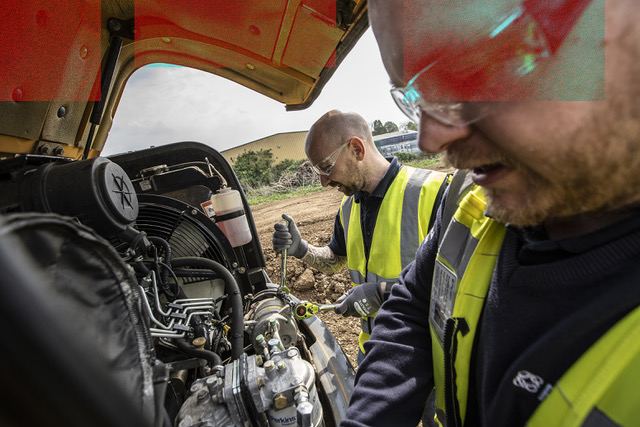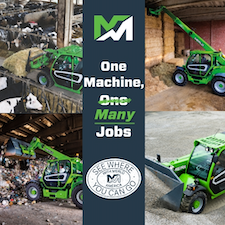Summertime diesel do’s and don’ts
Diesel engines are generally more tolerant of high temperatures than gasoline engines, but summer heat still can be hard on diesel engines. A little extra care goes a long way to protecting your investment.
Do make sure there is plenty of airflow to the cooling system. Check the inlets and clean as necessary. This is particularly important for static machines like gen sets.
 |
| Diesel engines are generally more tolerant of high temperatures than gasoline engines, but summer heat still can be hard on diesel engines. A little extra care goes a long way to protecting your investment. |
Don’t run the engine with access panels, cabinet doors or other parts of enclosures open. This can disrupt proper airflow and allow dirt, dust and other contaminants to reach the engine.
Do pay attention to temperature gauges and react to alarms as quickly as is safely possible.
Do check your coolant regularly with a hydrometer. The glycol in your coolant is there for a reason, it helps control heat better than plain water and doesn’t boil off.
Don’t top off the coolant with plain water. Make sure to use a proper water/glycol mix every time.
Do whatever you can to control dust, which is an engine killer. Turbocharger vanes and bearings are particularly sensitive to abrasive particles in concrete or rock dust. Water the job site if you can.
Do check your air filter every day, its effective life can be substantially shortened in dusty summertime conditions.
Don’t try to clean your air filter by ‘knocking the dust off.’ That can create bigger holes in the filter media that will let in more dirt and actually make it less effective.
Do replace your air filter when it gets dirty. It costs much less than a new turbocharger or engine.
Do use OEM filters and parts. They are designed by the engineers who designed your engine and know what’s required. A ‘will-fit’ is designed to a price by people who can only guess what your engine really needs.
Do pay special attention to your EGR cooler, it runs much hotter than the radiator and is easily starved for coolant when mounted high above the engine. It’s another reason why proper glycol content in your coolant is very important.
Don’t worry about how hot your diesel particulate filter (DPF) may become. It’s designed to withstand the heat of regeneration.
Do store your diesel exhaust fluid (DEF) out of direct sunlight and at temperatures below 86F. It’s 60-percent water, which can evaporate under the wrong conditions.
Don’t use DEF that has been stored more than 6 to 12 months, particularly in an engine that’s only used intermittently like a standby genset.
Don’t put anything except DEF in the DEF tank. Lubricants, fuel, water or anything else will almost certainly damage the catalyst in the exhaust system, leading to an expensive repair.
Do check and maintain the DEF filter. Urea crystals from degrading fluid and ordinary dirt can damage injectors if the filter doesn’t remove them.
Do drain the fuel/water separator every day. Water in your fuel can damage injectors.
Don’t pour cold fuel into a hot fuel tank. It can cause condensation that puts water in your fuel.
Do let stored fuel set undisturbed for a while so any water or dirt can settle to the bottom of the tank where it can be removed.
Do check your fuel tank seals regularly. A damaged seal can’t keep the dirt out.
And finally...
Don’t shut down your engine without letting it idle for 5 to 10 minutes to cool down. DEF injectors need to be cooled down to extend their life and turbocharger bearings depend on engine lubricant for cooling and that flow stops when the engine is shut off.
Editor’s note: This article was written by Julian Wood, Perkins product manager for Aftermarket.












